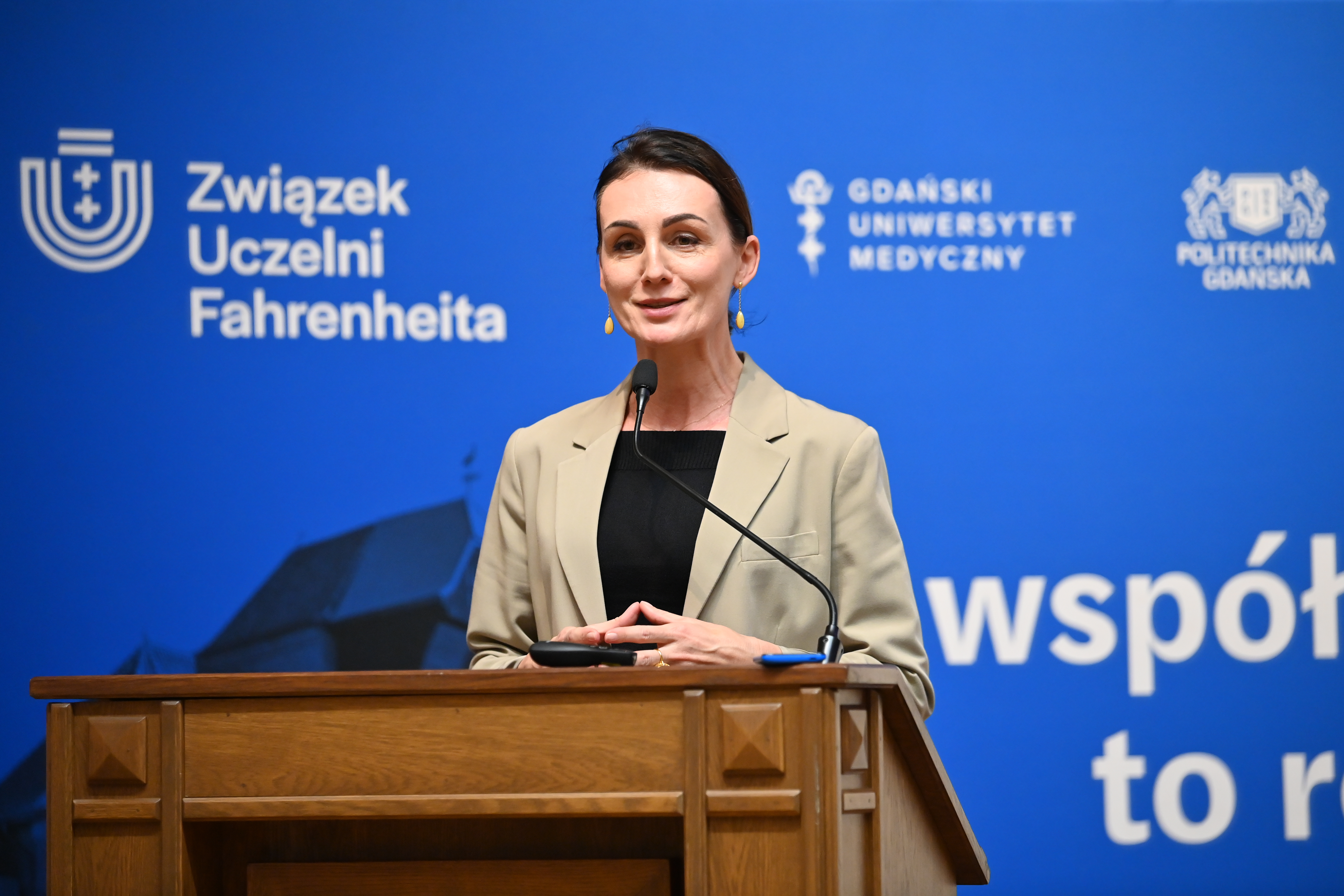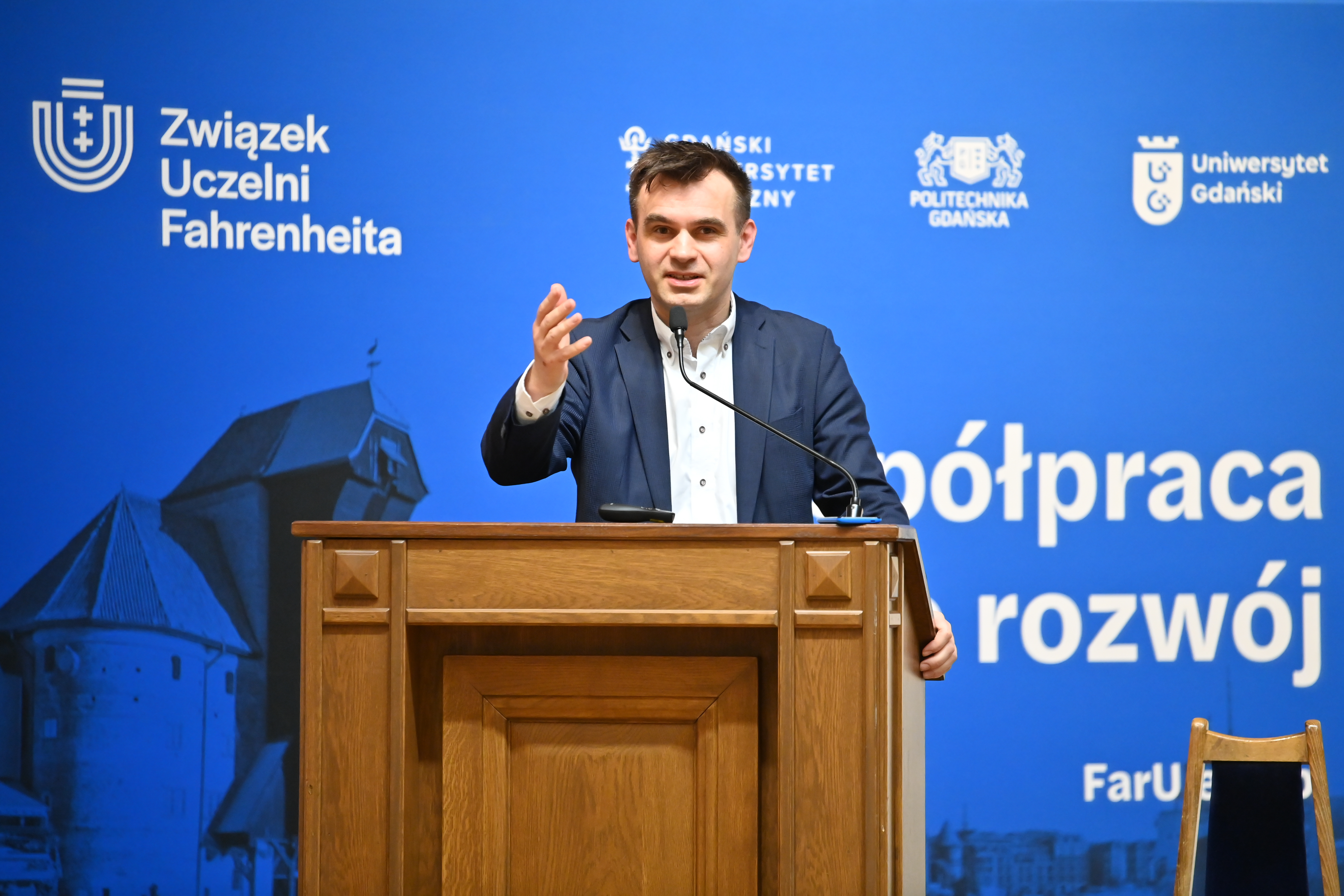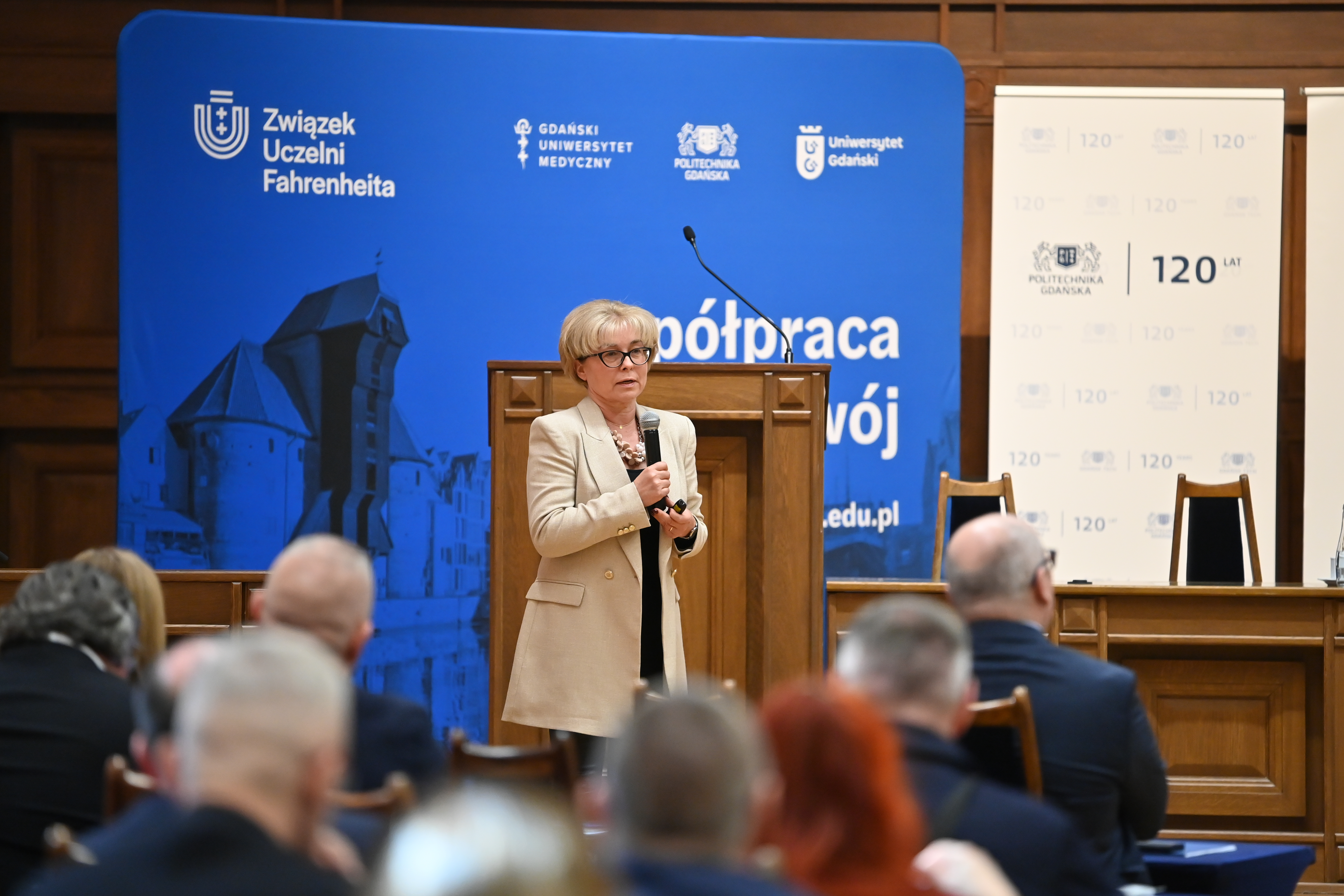Pomeranian Energy Hub. Knowledge, Technology, Competence
A shared vision for decisive regional change, with significant implications for Poland’s energy security, brought together local government representatives, scientists, and business leaders during the latest session of the Business Convention at the Fahrenheit Universities.
The event was hosted at the Gdańsk University of Technology, where Prof. Krzysztof Wilde, Rector of the university, welcomed all attendees. In his opening remarks, he referred to international examples of collaboration within the “golden triangle” – linking academia, business, and the government – and highlighted the growing role of the Metropolia think tank in the Pomeranian region. The Rector emphasised that close cooperation between local government, business circles and the scientific community is essential to the success of advanced projects in technology, and noted that such projects must be rooted in the knowledge and competencies of the local population.

The session was officially opened by the Chairman of the Business Convention at the Fahrenheit Universities, Zbigniew Canowiecki, Ph.D. As an introduction to the session’s theme, the speaker highlighted several key initiatives currently underway in the region, such as Baltic Nuclear Energy Forum, and recalled early discussions on energy sector development held by Convention members in previous years.
Beata Rutkiewicz, the Head of the Pomeranian Region, also addressed the audience, emphasising that “this is no longer the time for discussion, it is the time for action, to seize the opportunity ahead of Pomerania”. She stressed that the energy transformation is already underway, made possible in part by the synergy emerging from collaboration between local and central government, as well as the strong ties built between business and academia. She encouraged stakeholders to submit project proposals and continue the dialogue, calling such initiatives a driving force behind breakthrough investment processes in the region.

The series of short presentations began with Prof. Dariusz Mikielewicz, Vice-Rector for Organisation and Development at the Gdańsk University of Technology, who outlined key data highlighting the region’s strategic advantages, the opportunities they present, and the major challenges that must be addressed He pointed to the steadily increasing share of renewable energy in final energy consumption, the region’s exceptional potential for rapid development in offshore wind energy, and its emerging role, alongside the construction of a nuclear power plant, as a key beneficiary of Poland’s Energy Policy 2040.
Stanisław Szultka, Director of the Department at the Office of the Governor of the Pomeranian Region, followed with remarks on building regional competitiveness. He also discussed factors influencing the success of planned initiatives, particularly in the context of a shifting renewable energy market structure. He emphasised that while the prospect of becoming a leading producer and exporter of energy is within reach, such a prospect also demands proactive measures to prevent grid destabilization. Examples include maximizing self-consumption through local energy balancing and continuously assessing emerging technologies, particularly in the area of energy storage.

One of the most interesting projects of the coming years, the nuclear power plant, was presented by Marcin Jaskólski, Ph.D. Eng., Nuclear Energy Representative to the Rector of the GUT. He outlined the plant's operational principles, reactor technologies, and safety systems that will support its exploitation.
The importance of human capital and specialized competencies was revisited by Prof. Marcin Łuczak, Director of the Offshore Wind Energy Center at the Gdańsk University of Technology. He emphasized that it is people, and not technology, who play the central role in implementing comprehensive energy solutions. Drawing on examples from current research and projects (including DigiWind and Baltic Windustry), he encouraged collaboration both locally and internationally.
Then, Prof. Ewa Klugmann-Radziemska from the Department of Energy Conversion and Storage at the Faculty of Chemistry, GUT, highlighted two critical aspects in the evaluation of technologies. She reminded attendees of the Energy Return on Investment (EROI) ratio and the importance of life-cycle analysis from preparation and implementation to raw material consumption as essential reference points for classifying technologies as low- or zero-emission sources, extending beyond the commonly discussed carbon footprint.

The final presentation focused on hydrogen technologies and the growing demand for renewable hydrogen. Prof. Jacek Gębicki from the Department of Process Engineering and Chemical Technology at the GUT provided an overview of the current state and future projections, including financial requirements.
The meeting concluded with a forum discussion, during which participants expanded on the role of hydroelectric power plants in improving surface and groundwater retention. These installations were also noted for their positive impact on water aeration and purification processes.
In closing remarks, the Chair of the Convention announced that the next session will be hosted by the University of Gdańsk.
photo: Gregmar











